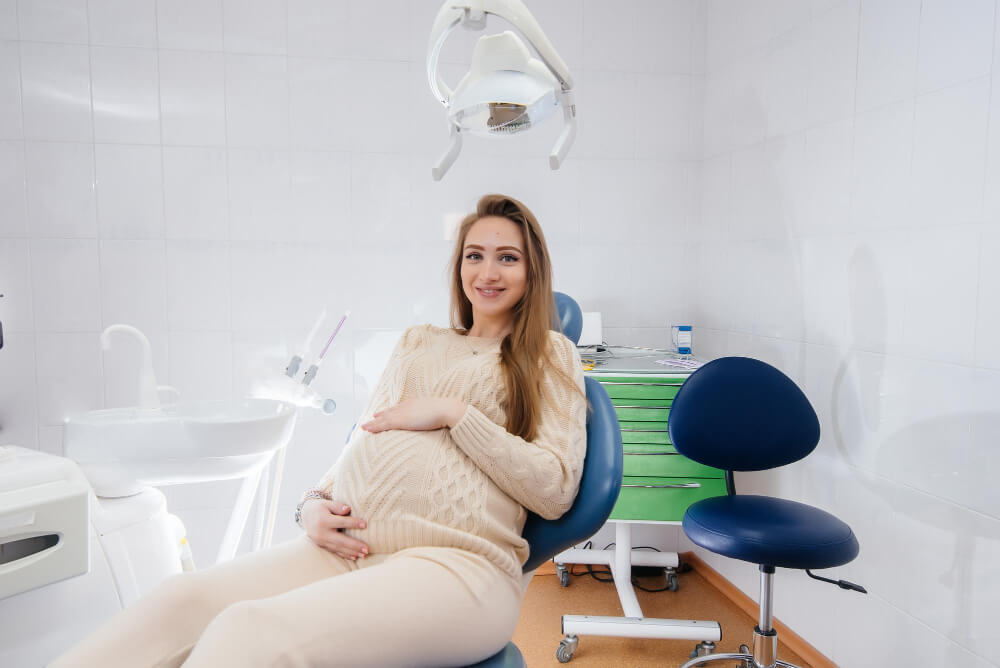
Newsletter Subscribe
Enter your email address below and subscribe to our newsletter

Enter your email address below and subscribe to our newsletter

Yes, you can get a tooth pulled while pregnant. The second trimester is the best time. Dentists use local anesthesia and low-radiation X-rays. Always consult both your dentist and obstetrician to ensure safety for both mother and baby.
Key Takeaways
Tooth extraction during pregnancy can be safe. Dentists take special precautions to ensure the safety of both mother and baby. Consult with both your dentist and obstetrician to ensure the procedure aligns with your health needs.
The second trimester is generally considered the best time for dental extractions. The baby’s critical development stages in the first trimester and the approaching delivery in the third trimester make the middle period ideal for such procedures.
Read more: Dangers of Dental Work While Pregnant
Dentists may need X-rays to assess the tooth and surrounding bone. Modern digital X-rays use very low radiation levels, and lead aprons provide extra protection for both mother and baby.
Local anesthesia is commonly used for dental procedures during pregnancy. It numbs the area, ensuring the extraction process is pain-free. Avoiding sedation or general anesthesia is recommended to minimize risks.
Some risks exist, but proper precautions can mitigate them. Discuss your medical history with your dentist and obstetrician to ensure the extraction is necessary and safe. Postponing non-emergency dental work until after delivery is sometimes advised.
After the extraction, managing pain becomes important. Over-the-counter pain relievers like acetaminophen are often recommended. Avoid ibuprofen and aspirin unless your healthcare provider advises otherwise.
Getting a tooth pulled during pregnancy involves several steps. The dentist will administer local anesthesia, perform the extraction, and provide aftercare instructions. Follow these instructions to ensure a smooth recovery.
Several factors contribute to the safety of tooth removal during pregnancy. Using local anesthesia, avoiding unnecessary medications, and scheduling the procedure during the second trimester all help ensure the well-being of both mother and baby.
Yes, it’s generally safe to have a tooth extraction while pregnant, especially during the second trimester. Dentists use local anesthesia and low-radiation X-rays, which minimize risks. Always consult both your dentist and obstetrician to ensure the procedure aligns with your health needs and safety for both mother and baby. Postpone non-emergency dental work until after delivery if possible.
If a woman has a dental problem during pregnancy, she should consult both her dentist and obstetrician. The second trimester is the best time for dental procedures. Dentists can safely use local anesthesia and low-radiation X-rays.
Yes, a tooth infection can impact your pregnancy. Infections can lead to complications, including preterm labor and low birth weight. Address dental infections promptly. Consult both your dentist and obstetrician to manage the infection safely and effectively.
During pregnancy, avoid elective dental procedures like teeth whitening and cosmetic treatments. Major surgeries should be postponed unless they are emergencies. Sedation or general anesthesia should be avoided. Consult with your dentist and obstetrician before any dental procedure to ensure the safety of both mother and baby.
Fact Checked
Our dedicated team rigorously evaluates every article and guide to ensure the information is factual, up-to-date, and free of bias.
Updated Regularly
We update our articles and reviews regularly to ensure you have access to the latest data in the dental industry.
Comments are closed.
The content on Dental3DU’s blog is intended for educational purposes only. This information should not be relied upon as professional medical counsel. Be sure to always consult with your dentist about the dangers and benefits of any medication, treatment or procedure.
Dental articles in your inbox. Subscribe
[…] Read more: Can You Get a Tooth Pulled while Pregnant? […]